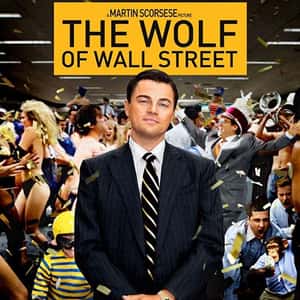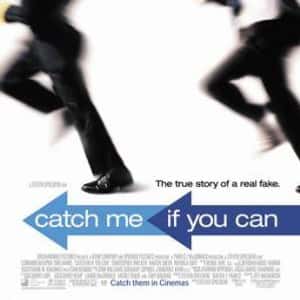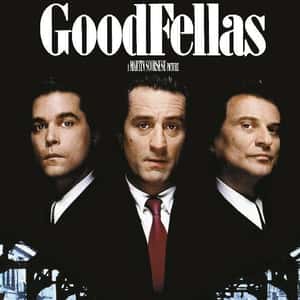The Wolf of Wall Street is a biographical black comedy directed by Martin Scorsese, recounting the rise and fall of Jordan Belfort, a stockbroker who became infamous for his hard-partying lifestyle and the massive securities fraud he orchestrated in the 1990s. Portrayed by Leonardo DiCaprio, Belfort starts his career with noble intentions but soon succumbs to the corrupting influences of Wall Street's excess and greed. The movie navigates through his journey of opulence and decadence, highlighting the schemes that propelled him to wealth and eventually led to his downfall. It's a wild ride through the glitz, glamour, and gritty underside of financial hustle, accompanied by a colorful cast of enablers and accomplices.
As a movie about making money, The Wolf of Wall Street stands out for its frenetic storytelling, magnetic performances, and Scorsese's signature directorial flair. What makes it unique among money movies is not just its portrayal of financial success and the pursuit of the American dream but its candid exploration of the moral bankruptcy that sometimes accompanies it. Rather than merely celebrating the accumulation of wealth, the film serves as a cautionary tale about the cost of unchecked ambition. It excels in depicting the intoxicating allure of easy money and the destructive consequences that follow, which, combined with its larger-than-life true story and satirical edge, cement its place as one of the best and most engaging narratives in the genre.
- Released: 2013
- Directed by: Martin Scorsese
Catch Me If You Can is a fast-paced biographical crime film directed by Steven Spielberg, telling the true story of Frank Abagnale Jr., a young master of deception played by Leonardo DiCaprio. Before turning 19, Frank successfully executes millions of dollars' worth of check fraud while posing as a Pan Am pilot, a doctor, and a legal prosecutor. Always one step ahead of the law, his escapades across countries and identities are tracked by relentless FBI agent Carl Hanratty, portrayed with a mix of frustration and admiration by Tom Hanks. The film is a captivating cat-and-mouse tale that explores themes of identity, trust, and the seductive power of the American Dream.
As a standout among the best money movies, Catch Me If You Can offers a unique glimpse into the life of an extraordinary con artist whose schemes revolve around the innovative ways he acquires and fashions money out of thin air. Frank's creative techniques and charismatic charm make for a compelling viewing experience that is as educational as it is entertaining, providing insight into the complexity of bank fraud and the art of the con. The movie doesn't merely celebrate the accumulation of wealth; instead, it scrutinizes the hollow satisfaction that money brings when disconnected from genuine relationships and authenticity. By interweaving the high stakes of financial pursuit with the heartfelt personal narrative of its protagonist, the film delivers a nuanced message about the true value of wealth, placing it in a league of its own within the genre of movies about making money.
- Released: 2002
- Directed by: Steven Spielberg
- 1The Wolf of Wall Street42 Votes
- 2American Made20 Votes
- 3Now You See Me36 Votes
- votes needed!NEW TO THE LIST
- NEW#63Cold Wallet
Goodfellas, directed by Martin Scorsese, paints an enthralling portrait of organized crime's grit and allure through the eyes of Henry Hill, played by Ray Liotta. Narrating his life story, Henry takes viewers through his ambitious climb up the ranks of the Italian-American mafia, from his wide-eyed boyhood dreams of becoming a gangster to his eventual involvement in the infamous Lufthansa heist. Alongside Robert De Niro and Joe Pesci, who play his cunning and volatile partners in crime, Henry navigates a treacherous world of violence, loyalty, and wealth. Set against the backdrop of mid-20th century New York, Goodfellas explores the rich tapestry of mob life with visceral style, capturing the thrilling highs and perilous lows of the criminal underworld.
As a film that digs into the psyche of moneymaking within the mafia's shadowy realm, Goodfellas stands as one of the most authentic movies about making money. The film unravels the complexity behind the gangsters' lavish lifestyles, illuminating the notion that wealth in this context is not simply about luxury but rather a symbol of power, respect, and survival. Unlike typical narratives that glamorize the accumulation of fortune, Goodfellas lays bare the ruthless machinations and the inevitable moral decay that accompany the pursuit of ill-gotten gains. This honest and unfiltered depiction of the criminal pursuit of wealth, combined with its dynamic storytelling and rich character development, secures Goodfellas a revered place not just within the genre of gangster films, but also as a definitive study of the seductive, yet dangerous dance between money and power.
- Released: 1990
- Directed by: Martin Scorsese
- 1Casino102 Votes
- 2The Godfather107 Votes
- 3The Sopranos92 Votes
The Big Short, directed by Adam McKay, is a biographical drama based on the book by Michael Lewis, providing an incisive look at the build-up and subsequent fallout of the 2007-2008 financial crisis. The film weaves together multiple storylines following a group of savvy financiers who predict the collapse of the housing market, a grave outcome largely ignored or overlooked by the rest of the financial world. As these individuals bet against the booming mortgage industry by investing in credit default swaps, they expose both the corruption and the sheer incompetence that contributed to one of the worst financial downturns in history. Through its blend of sharp humor and sobering drama, The Big Short demystifies complex financial instruments and practices that led to the crisis, making it accessible and engaging to viewers.
What elevates The Big Short as one of the best movies about making money is its clever use of unconventional storytelling techniques to navigate the often opaque world of finance. The film uniquely breaks the fourth wall, with characters directly addressing the audience to explain financial concepts through various comedic analogies and celebrity cameos, a method that embodies the film's educational intent without sacrificing entertainment value. Moreover, it challenges the glamorized view of Wall Street by underlining the ethical dimensions of profit-making, highlighting the fact that in the world of high finance, one person's fortune could be another's devastating loss. This introspective and enlightening approach to how money is made—and lost—distinguishes The Big Short as a thought-provoking contribution to the genre that resonates with contemporary audiences.
- Released: 2015
- Directed by: Adam McKay
Wall Street is an iconic drama that delves into the high-octane world of finance during the opulent 1980s, helmed by director Oliver Stone. At the core of the film is the ambitious young stockbroker Bud Fox, played by Charlie Sheen, who becomes seduced by the wealth and power of his idol Gordon Gekko, a corporate raider brilliantly portrayed by Michael Douglas. Hungry for success, Bud is drawn into a world of insider trading and corporate espionage, as he rides the volatile waves of the stock market. The film's examination of greed, ambition, and the ethical compromises one makes in the pursuit of money captures a defining moment in American business culture, marked by Douglas' infamous declaration that "Greed, for lack of a better word, is good."
Wall Street stands as a quintessential entry among the best money movies due to its acute portrayal of financial machinations and the personal cost of unbridled ambition. It offers an intimate look into the strategies of wealth accumulation in the competitive world of finance and the slippery moral slope that can accompany such pursuits. Unique to this film is its moral complexity and the cautionary tale woven into its narrative, examining the consequences of valuing money above all else. Michael Douglas' portrayal of Gordon Gekko has become an archetype of cinematic avarice, making Wall Street not just a film about making money, but a pivotal study on the broader implications of its pursuit. Whether viewed as a critique or a celebration of the financial sector's excesses, Wall Street remains an influential piece of cinema that resonates with audiences drawn to the drama of the almighty dollar.
- Released: 1987
- Directed by: Oliver Stone
Scarface, directed by Brian De Palma and written by Oliver Stone, is an intense crime drama that traces the rise and fall of Tony Montana, a Cuban immigrant turned powerful drug lord in Miami. Al Pacino's portrayal of Montana has become iconic, capturing the character's ruthless ambition as he escalates from small-time thug to cocaine kingpin. The film doesn't shy away from showcasing the cold-blooded violence and Machiavellian maneuvers inherent in the drug trade, depicting Tony's relentless pursuit of power and wealth under the mantra "The World is Yours." As Montana's empire expands, his greed, paranoia, and desire for control ultimately lead to his spectacular downfall, leaving a cautionary imprint on the dark side of the American Dream.
Scarface is acclaimed as one of the best movies about making money because it offers a raw, unadulterated examination of the lengths one will go to achieve financial success, no matter the moral cost. The film's unique portrayal of the drug-fueled economy of the 1980s, set against a backdrop of excess and opulence, highlights the intoxicating lure of quick wealth and the destructive consequences that accompany it. Tony Montana's character becomes a larger-than-life figure, symbolizing the perilous intersection of capitalism with the criminal underworld. The movie also delves into the psychological impact of money on Tony's relationships and sense of self, contributing to its enduring appeal as a profound narrative about the perilous journey to acquire, and ultimately lose, fortune and power.
- Released: 1983
- Directed by: Brian De Palma
- 1The Departed26 Votes
- 2Goodfellas42 Votes
- 3Carlito's Way32 Votes
Ranked by



















